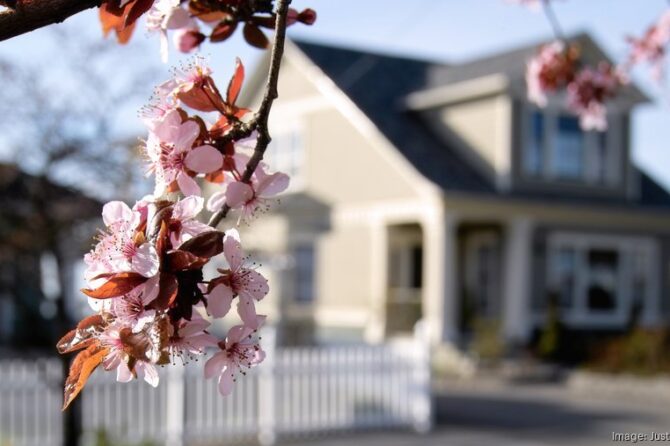Are you considering buying your first home, but unsure where to start? Purchasing a home is one of the biggest financial decisions a person can make, and the path to ownership may feel confusing for many first-time buyers. Thankfully, it doesn’t have to be. Chase can help you navigate the homebuying process so getting the keys to your first home may be closer than you think.
In Chase Home Lending’s First-Time Homebuyer Study, 69% of respondents said they still see homeownership as an important part of building wealth. The survey included more than 1,100 consumers who indicated that they are looking to purchase a home and are actively preparing to buy. Unfortunately, systemic inequities have created historic barriers to homeownership. As a result, rates of homeownership in Black communities are 25% lower than white communities, with the gap worsened by the 2008 housing crisis and the COVID-19 pandemic – both taking a disproportionate toll on Black communities.
Chase’s new Senior Home Lending Adviser, Justin Cotton at the Chase Community branch in Skyland Town Center, is a dedicated resource and adviser on all things homeownership. We sat down with Justin to discuss what you need to know about buying your first home.
What is your role as a Home Lending Adviser?
As a Senior Home Lending Adviser, I am responsible for helping people in Wards 7 and 8 prepare for homeownership, find the financing solutions to fit their needs, and get all of the down payment/housing assistance they may qualify for. I work very closely with many first-time homebuyers, helping them to navigate this process for the first time. But, I also help customers who are looking to refinance, or who might be upsizing or downsizing their current home. I start by looking at each customer’s full financial picture in order to make the best recommendation for your successful path to homeownership. From pre-qualification to closing, I’m here to offer guidance, support and expertise along the way.
What do first-time buyers need to know when considering applying for home loans?
1. Prepare your finances: Buying a home can be a big financial undertaking which is why it will be important for you to get your finances in good shape. This involves things like continuing to pay bills on time, not taking on new debt and strengthening your credit score, which can help you secure a lower interest rate on your home loan.
2. Plan for your down payment: It’s a well-known fact that you will most likely need to put money down upfront to purchase a home. However, it’s a myth that you must put 20% down. Every case is different, and there are a variety of mortgages available that may require as little as 3% down, such as the Chase DreaMaker. There may also be local programs that could help with down payment and closing costs. It’s always a good idea to start saving, but it’s also important to get familiar with what products and assistance might be available to you.
3. Get pre-qualified: As you begin your homebuying journey, it’s important to know how much home you can afford. Getting pre-qualified through a lender like Chase allows you to see what you may be eligible for, and it also shows sellers and real estate agents that you’re a serious and competitive buyer.
What are some of the resources that Chase is offering to help increase homeownership for Black families and individuals?
Last year Chase expanded its Homebuyer Grant program up to $5,500 for eligible customers to help with closing costs and down payment assistance when buying a home in more than 6,700 minority communities nationwide.
We also developed a new role called “Community Home Lending Adviser” which is designed to be located in minority and low-to- moderate-income communities. They will be experts in local housing and down payment assistance programs and will work closely with local housing nonprofits and other community organizations.
We’re also supporting Project REACh, a government-backed initiative aimed at removing barriers to financial inclusion. The goal is to be able to extend credit to people who haven’t been afforded the chance to borrow because they lack a traditional credit score/credit history. In a pilot program expected to launch this year, our firm will begin factoring in applicants’ checking or savings account history as a way to help them build a credit history and score to leverage when it comes time to apply for a mortgage, or other loan.
If you think you’re ready to take the next step in purchasing a home, stop by the Chase Skyland Community Branch at 2728 Good Hope Rd. SE. to find out more about the tools, resources and capital available to help make your homeownership dream a reality.
This article was written by the Washington Informer, read more articles like this here.
Photo: Shot of a couple taking a break from unpacking in their new home










